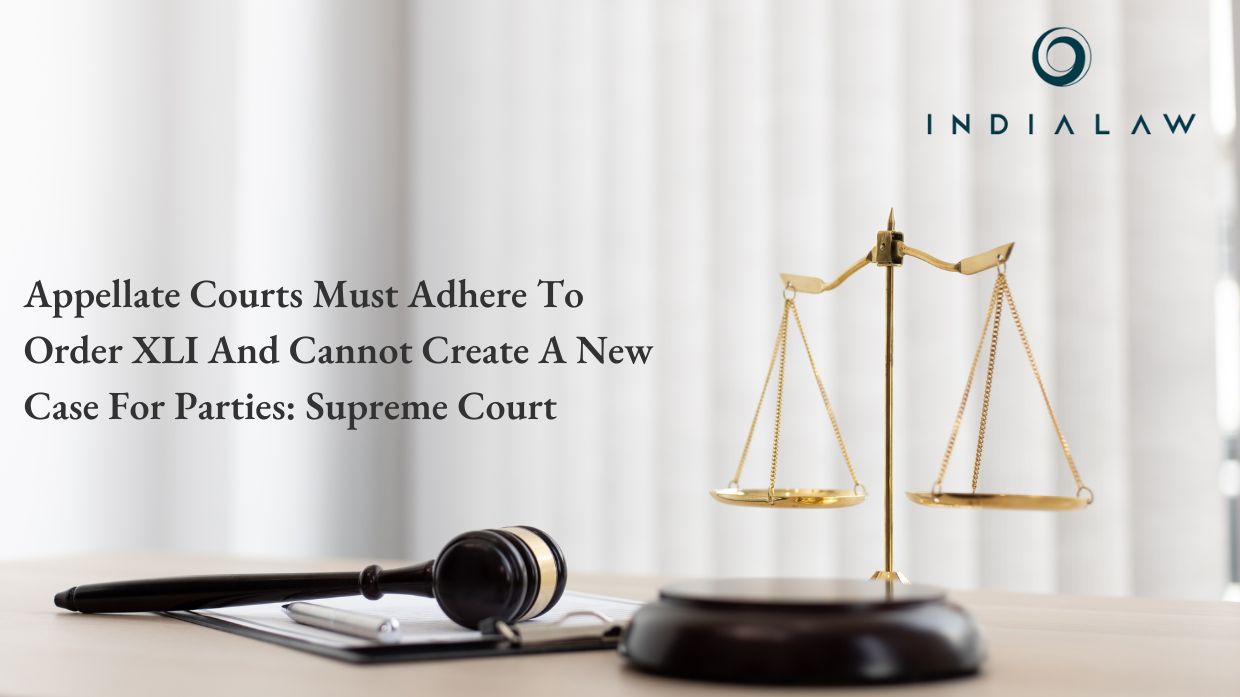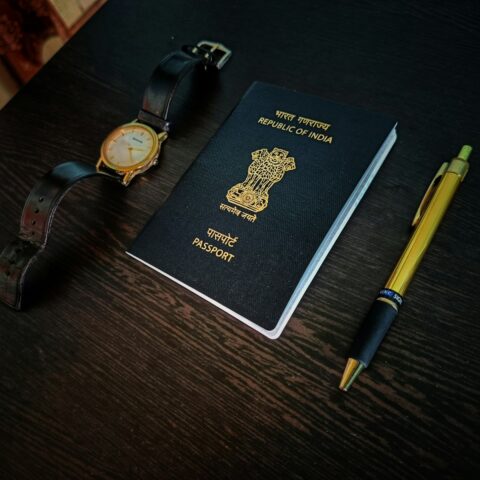Appellate Courts Must Adhere To Order XLI And Cannot Create A New Case For Parties: Supreme Court

In a recent landmark judgment[i], the Hon’ble Supreme Court (“SC”) emphasized a crucial principle in appellate jurisprudence, stating that the appellate courts must strictly adhere to procedural norms and cannot create new issues or cases beyond the scope of the original / initial proceedings.
The case arose from a dispute over land ownership wherein the appellants, the heirs of Mr. Rama KT. Barman, sought to recover possession of land from the respondents, Md. Mahim Ali and others. The appellants initially succeeded in their claim at the trial court, which led to a decree in their favour. However, the respondents challenged the aforesaid decision in the appellate court, however, their appeal was dismissed.
Subsequently, the respondents pursued a second appeal in the Hon’ble High Court of Gauhati (“HC”). The HC, however, framed several new substantial questions of law that had not been part of the original pleadings or proceedings raised before the Ld. Trial Court. The HC thereafter, allowed the second appeal preferred by the respondents, overturning the Ld. Trial Courts’ decisions, citing errors in their consideration of the Assam (Temporary Settled Areas) Tenancy Act, 1971.
Thereafter, when the matter was referred to the SC, the bench deliberated upon the decision delivered by the HC on the following points. Firstly, it criticized the HC for introducing new substantial questions of law that did not form a part of the original proceedings. The new issues framed by the HC, which pertained to tenancy rights and statutory compliance, had neither been raised by the parties nor examined by the Ld. Trial Court or the Ld. Appellate Court. Secondly, the SC emphasized the necessity of adhering to procedural rules as outlined in Order XLI of the Code of Civil Procedure, 1908 (“CPC”). Order XLI Rule 25 of the CPC[ii] allows an appellate court to frame additional issues and refer them for trial if needed, however, as prescribed the proceeding before the appellate court must follow proper procedural norms and should not involve creating entirely a new case. Lastly, the judgment highlighted that the appellants were not given an opportunity to present evidence or to be heard on the newly introduced issues. Thereby, this omission violated their right to a fair hearing, as they were denied a chance to address the fresh questions that the HC had framed.
In authors’ opinion SC’s ruling reinforces the principle that appellate courts cannot act beyond their jurisdiction by framing new issues or creating an entirely new case on behalf of the parties which they had not pleaded. Instead, they must resolve appeals based on the existing record and issues from the trial and first appellate courts. It clarifies the role of appellate courts, emphasizing that the appellate courts must review decisions based on the issues originally presented, rather than framing new questions.
[i] Rama KT. Barman (Died) Thr. LRS v. Md. Mahim Ali & Ors Civil Appeal No.3500 of 2024.
[ii]ORDER XLI
APPEALS FROM ORIGINAL DECREES
Rule 25. Where Appellate Court may frame issues and refer them for trial to Court whose decree appealed from.—Where the Court from whose decree the appeal is preferred has omitted to frame or try any issue, or to determine any question of fact, which appears to the Appellate Court essential to the right decision of the suit upon the merits, the Appellate Court may, if necessary, frame issues, and refer the same for trial to the Court from whose decree the appeal is preferred, and in such case shall direct such Court to take the additional evidence required; and such Court shall proceed to try such issues, and shall return the evidence to the Appellate Court together with its findings thereon and the reasons therefor 1 [within such time as may be fixed by the Appellate Court or extended by it from time to time].
By entering the email address you agree to our Privacy Policy.



